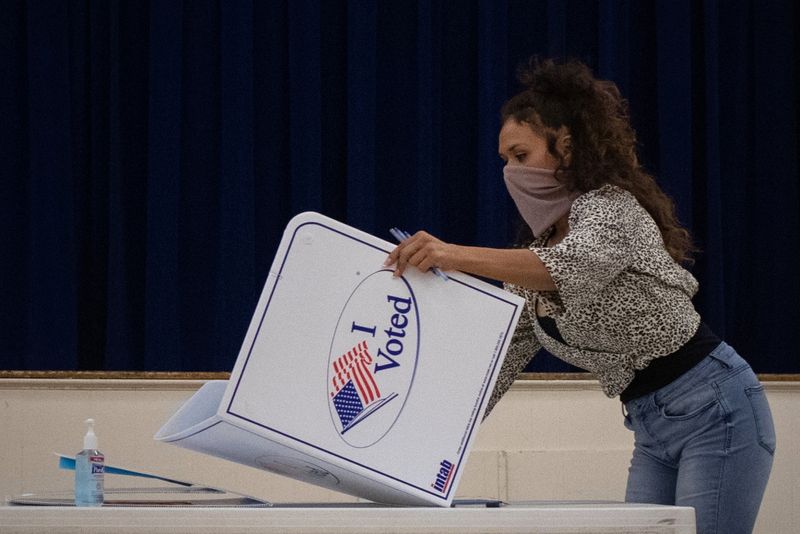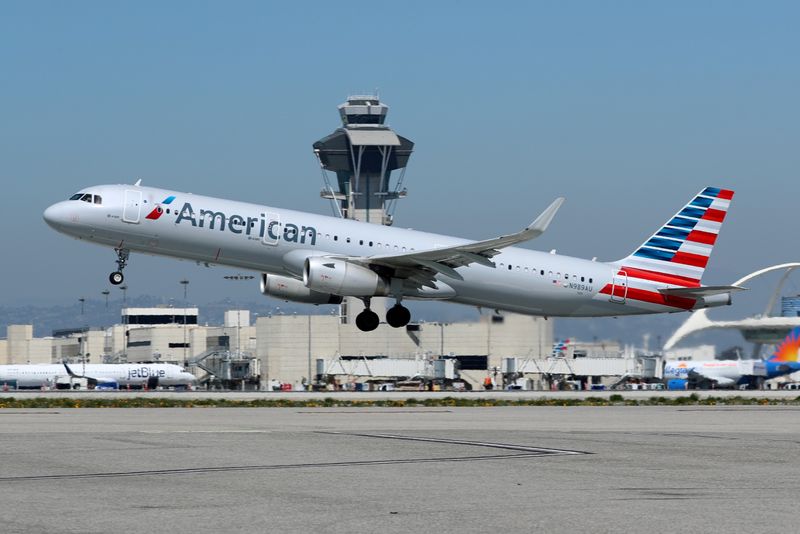By David Shepardson, Joseph Ax and Tracy Rucinski
WASHINGTON (Reuters) - Texas appeared on Thursday to become the next flash point on politically charged issues in Corporate America after legislation passed by the state Senate to limit voting access prompted a rebuke from American Airlines (NASDAQ:AAL).
"We are strongly opposed to this bill and others like it," Fort Worth, Texas-based American said in a statement.
The legislation, which is now set to go before the Texas House of Representatives, would eliminate drive-through voting, limit polling site hours and give partisan poll watchers more autonomy.
Southwest Airlines (NYSE:LUV), also based in Texas, declined to say if it opposed the legislation but said: "We believe every voter should have a fair opportunity to let their voice be heard. This right is essential to our nation’s success."
The Texas effort drew sharp criticism from voting rights advocates and Democrats in the state, who argue that the legislation would make it more difficult for Texans, particularly those of color, to cast ballots.
The state already has some of the most stringent voting laws in the country, according to election experts. A state House of Representatives committee on Thursday was holding a hearing on a companion bill that would impose other voting restrictions.
Texas is one of several states, including Georgia, Florida, Arizona and Iowa, where Republican lawmakers have pursued new voting limits after former President Donald Trump falsely blamed his November loss on widespread voter fraud despite no evidence.
Republican lawmakers say the law is needed to ensure public confidence in election integrity.
The comments by American and Southwest came after Atlanta-based Delta Air Lines (NYSE:DAL) and Coca-Cola (NYSE:KO) on Wednesday joined a growing number of companies that challenged the state of Georgia's new voting restrictions.
Delta CEO Ed Bastian blasted the law on Wednesday in a reversal from an initial statement last week that sparked a popular backlash.
But his new stance drew condemnation from Georgia's Republican Governor Brian Kemp and many Republicans, including Senator Marco Rubio who questioned why Delta criticized Georgia but not China.
"Far too many multinational corporations are too eager to make their voices heard on the woke issues of the day in the United States, but remain stunningly silent, or in Delta’s case, complicit, in real, ongoing atrocities in countries like China." Rubio wrote.
Delta did not immediately comment on Rubio's letter.
The Georgia House late Wednesday voted to repeal a jet fuel sales tax break that Delta uses but the state Senate did not act on it before the legislative session adjourned.

Kemp told Fox Business he thought the tax issue was "moot" now that the legislature had adjourned.
